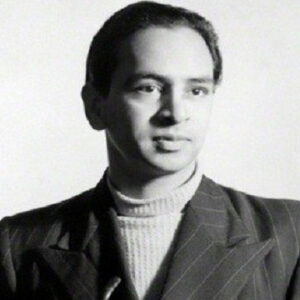Mulk Raj Anand was an Indian author who wrote in English. He was one of the first Indian writers to make a name for himself internationally. He wrote hundreds of novels, short stories, and essays. He is known as a pioneer of anglo-Indian fiction, and what people remember most about him is how he wrote about the poor in India and how hard their lives were. His writings are full of realistic and moving stories about the problems of the average person. He often writes in a way that makes your heart hurt. Mulk Raj Anand knew too much about the problems of the poor because he was one of them. As the son of a coppersmith, he had seen unspeakable cruelty and horrors happen right in front of him. All of this was caused by the caste system, which hung over India like a curse. He loved to learn, so he went to Cambridge for college and got involved in politics there. After that, he went back to India to work for India’s independence. He was a brave and honest writer who wrote about many bad things that were going on in India. He was a prolific writer who wrote a lot of books. Most of them were about the way people lived during his time.
Early years and childhood
He was born in Peshawar to Lal Chand and Ishwar Kaur. Lal Chand was a soldier and a coppersmith. Mulk Raj was hurt by the problems in Indian society that had to do with religion and caste from a young age.
He started writing when he was young. Some of his earliest works were about his love for a Muslim girl who was already married. He was also upset that a family member had killed himself after being shunned for eating with a Muslim. These things made him angry enough to want to say something.
He went to Khalsa College in Amritsar and then graduated from the University of Punjab in 1924. In 1921, while he was in college, he joined the Non-Cooperation Movement and was put in jail for a short time.
After that, he got a scholarship to go to University College, London, before going to Cambridge University. In 1929, he got his Ph.D. In England, he became very involved in politics on the left side.
Mulk Raj’s Career
He started writing in English because English-language publishers were more likely to publish books about the kinds of things he wrote about. He started writing in England, where he wrote short reviews for T. S. Eliot’s magazine, Criterion.
During the 1930s and 1940s, he was very involved in politics and often spoke at India League meetings, which were started by Krishna Menon.
During this time, he met people like Bertrand Russell and Michael Foot, who are both intellectuals, and authors like Henry Miller and George Orwell. He learned a lot from M.K. Gandhi.
In 1935, the British company Wishart put out his first book, “Untouchable.” The story was about a day in the life of Bakha, a boy from the untouchable caste who has to clean toilets because of his status. People thought the book was a powerful reminder of how terrible the caste system in India was.
In 1935, he helped Sajjad Zaheer and Ahmed Ali start the Progressive Writers’ Association in London. He was a key member of this group.
In his heartbreaking 1937 book, “Two Leaves and a Bud,” he wrote about how the lower caste people in India are used. It was about a poor peasant whose daughter is raped by a British officer who killed him in a brutal way.
During the Spanish Civil War in 1937, he joined the International Brigade. He wrote many articles and essays as a socialist about Marxism, Fascism, Indian independence, and other political issues.
In 1939, he started teaching literature and philosophy at the London County Council Adult Educational Schools and the Workers’ Educational Association. He did this until 1942.
He wrote, “The Village” in 1939. It was the first book in a trilogy that also included “Across the Black Waters” (1940) and “The Sword and the Sickle” (1942). (1942). The trilogy was about a rebellious teen and what he went through during World War I.
During the 1930s and 1940s, he spent some time in London and some in India. He was involved in politics in both places. He was a member of both the British Labour Party and the Indian National Congress.
During World War II, Anand worked in the film division of the BBC in London as a broadcaster and scriptwriter. After the war, he went back to India. In 1946, he started the art magazine, Marg.
From 1948 to 1966, he taught at different universities for the next few years. During the 1960s, he worked at the University of Punjab as the Tagore Professor of Literature and Fine Art.
From 1965 to 1970, he was in charge of fine art at Lalit Kala Akademi. In 1970, he also became the head of Lokayata Trust.
Works of note
His most famous work was the book “Untouchable,” which tells the story of a boy named Bakha who has to clean toilets because of his caste. The story is about what happens when he meets a man from an upper caste and sees terrible things.
Awards & Achievements
In 1967, India’s third-highest civilian award, the Padma Bhushan, was given to him for all he had done for literature and education.
His book, “The Morning Face,” won the Sahitya Academy Award (1968).
Personal History and Legacies
In London, he met actress Kathleen van, Gelder. They got married in 1938. They had a daughter together. But their marriage fell apart, and in 1948 they got a divorce.
In 1950, he married the dancer Shirin Vajibdar. He died in 2004 when he was 98 years old.
Estimated Net worth
Unknown.


